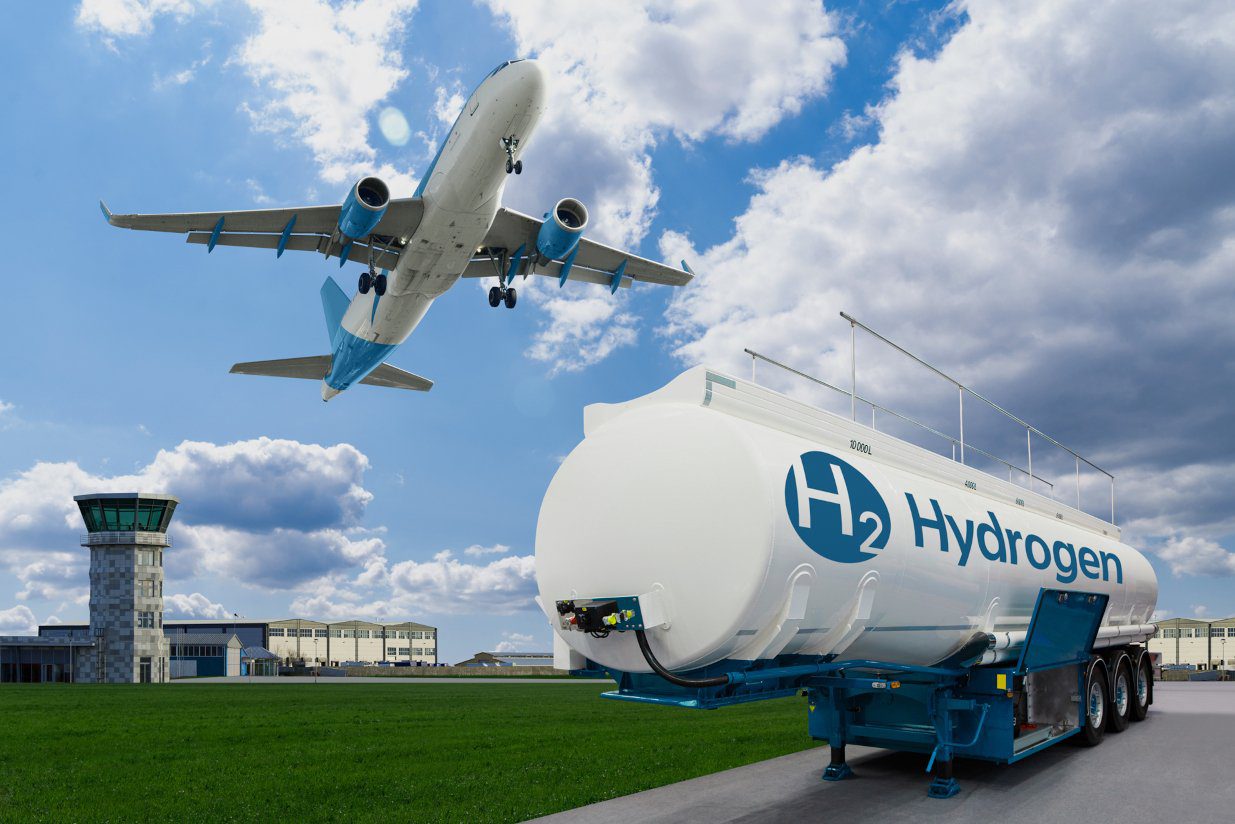A global coalition of major global and regional energy companies has begun moves to endorse a new pathway to turn methanol into a sustainable jet fuel.
Today, Wednesday, January 25 (2023), an alliance comprising the UAE’s Masdar companies, France’s Total Energy, Germany’s Siemens Energy, and Japan’s Marubeni announced the start of procedures for obtaining the necessary licenses to certify the new path for sustainable fuel production.
The new track aims to convert methanol into sustainable aviation fuel, which is led by Masdar to use green hydrogen in the production of sustainable aviation fuel.
sustainable aviation fuel
The new route would provide a new option that contributes to meeting the global market need for sustainable aviation fuel and supporting efforts to remove carbon emissions within the aviation sector.
The alliance is cooperating with the Department of Energy – Abu Dhabi, Etihad Airways, the Lufthansa Group and Khalifa University of Science and Technology, as part of a pilot initiative to produce sustainable and green aircraft fuel.
Since January 2021, the partners have been able to complete a range of technology supplier assessments, feasibility studies and designs, and work closely with regulators on compliance issues.
The coalition has now determined the adoption of converting methanol into aviation fuel as a path to producing its desired technology, according to data seen by the specialized energy platform.
The “synthetic paraffin kerosene” route was certified by the International Air Transport Association in 2016 as meeting international standards for aviation fuel, and the route includes many alcoholic substances such as ethanol and isobutanol.
Converting methanol into a sustainable fuel
The alliance aims to expand the range of alcoholic materials covered by the route by including methanol, which is a cornerstone of the chemical industry, the Emirates News Agency reported.
Although the individual components of the methanol-to-jet fuel pathway are often based on specific technologies, they have not previously been combined to produce a sustainable jet fuel, and thus this pathway has not previously been certified.
The Coalition is working with licensees on methanol-to-jet technology to certify this new pathway as soon as possible.
Sustainable aviation fuel is an immediately available solution to significantly reduce carbon dioxide emissions within the air transport sector.
It can be used as ready fuel without the need to modify existing storage and refueling infrastructure, aircraft and engines.
The gradual adoption of such a solution worldwide would contribute to a significant reduction in air transport carbon emissions, as bio-jet fuel can, on average, reduce carbon dioxide emissions by up to 80% during the various stages of production when it is manufactured from waste and residues.
Converting waste into hydrogen
The Abu Dhabi Future Energy Company “Masdar” had announced its cooperation with “ADNOC”, “BP”, the Abu Dhabi Waste Management Center “Tadweer” and Etihad Airways during Abu Dhabi Sustainability Week 2023, their agreement to conduct a joint feasibility study to explore opportunities for producing sustainable fuel for aircraft in the UAE. , and other products, such as clean diesel and “naphtha” using municipal solid waste and renewable hydrogen.
The feasibility study will enhance the capabilities of the five companies to assess the technical and commercial feasibility of such a project, and if the study results in positive results, the partners will work to develop the first production of its kind on a commercial level in the region in Abu Dhabi.
Sustainable jet fuel, which is produced using sustainable raw materials such as municipal solid waste and renewable hydrogen, has the ability to reduce carbon emissions at various stages of production by up to 80% on average during the full production cycle, compared to conventional jet fuel, according to the International Air Transport Association (IATA). iata).
The cooperation aims to consolidate the UAE’s leading role in the field of energy with low carbon emissions and the use of technology to achieve development within the sectors. It will also represent an important step in assessing the capabilities of the UAE and its ability to play a leading role in the world in the field of producing sustainable fuel for aircraft.
Aviation is one of the main sectors in the UAE, as it contributes more than 13% of the gross domestic product, according to economic data issued by the International Air Transport Association.
The sector is expected to continue to grow in the coming decades, provided that this growth is on a sustainable basis in support of the UAE’s strategic initiative to achieve carbon neutrality by 2050.
Currently, sustainable aviation fuel is considered one of the most feasible solutions capable of contributing to the reduction of carbon emissions for the aviation sector, in addition to its ability to provide supplies to international markets.

Leave a Reply